NYC Criminal Probe of Trump Appears Stalled
Manhattan's new DA seems to think he has a weak case.
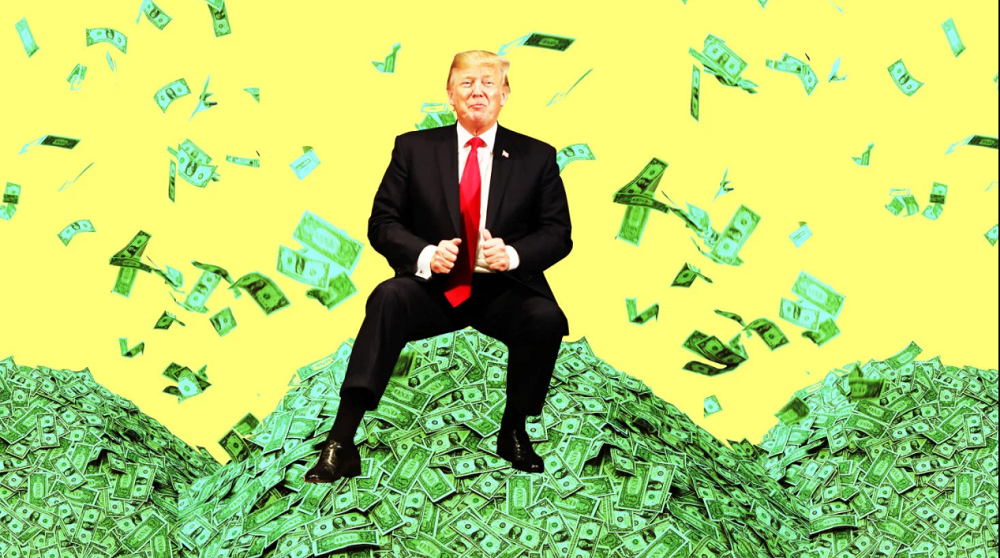
Between the events in Ukraine and a busy period at the office, I paid only passing attention to recent news that two prosecutors in the case had resigned. But the New Yorker‘s Jane Mayer (“Why Does New York’s Criminal Investigation of Donald Trump Appear All But Over?“) has drawn a somber conclusion:
The criminal prosecution of Donald Trump in his home town appears to be all but officially over, at least for now. In an unexpected reversal of roles, Alvin Bragg, who took over as Manhattan’s District Attorney, in January, after campaigning on a promise to hold the former President accountable, instead seems to have all but abandoned the case that was brought by his predecessor Cyrus Vance, Jr., a prosecutor often criticized for being too timid.
Before finishing out his third term as Manhattan D.A., Vance’s office successfully took its case against Trump to the Supreme Court twice. His office then indicted both Trump’s company, the Trump Organization, and his former chief financial officer, Allen Weisselberg, on tax charges. Prosecutors under Vance were reportedly focussing on whether Trump had criminally manipulated sworn statements of his net worth to mislead banks into giving him favorable loans, and government authorities into falsely reducing his taxes.
The former President has denied the allegations, and accused the Manhattan D.A.’s office of conducting a political witch hunt. But there were signs that investigators were making headway. This month, Mazars U.S.A., the accounting firm that had long handled Trump’s business, essentially fired him as a client, saying that it couldn’t vouch for the accuracy of nine years’ worth of Trump’s financial statements. A second grand jury was empanelled last November to hear the prosecutor’s developing case against Trump, and its term does not expire until April.
On Wednesday, the Times reported that the two most prominent prosecutors overseeing the case had unceremoniously quit. Carey Dunne and Mark Pomerantz submitted their resignations after Bragg signalled that he lacked confidence in the historic case. During his campaign last year, and in the weeks before taking office, Bragg had, in contrast, signalled that he would personally review the probe and expressed gratitude for the work of the two veteran prosecutors. “This is obviously a consequential case, one that merits the attention of the DA personally,” he told CNN, in December. “I can say that you’ve got two very good lawyers that have been looking at it for a while. I think it would be a disservice to Manhattan to lose them.”
Dunne and Pomerantz, both of whom had high-profile legal careers in private practice prior to working on the Manhattan D.A.’s investigation, differed with Bragg and wanted to continue pressing the case, according to a source with knowledge of the investigation. They became frustrated, though, with what they regarded as Bragg’s lack of support for the probe. The source suggested that career prosecutors in the office’s Investigation Division had questioned the strength of the case as well.
So why would a Democratic politician abandon a high-profile case that he had ran on prosecuting?
A spokesperson for Bragg told the Times that the investigation would continue without the two prosecutors, and that the D.A. was “grateful for their service.” But the source with knowledge of the probe said that, though Bragg might say it is ongoing, activity in the case has stopped. In essence, Bragg reversed a go decision. So far, his reasoning remains opaque.
The case was always a high-wire act. Unlike the parallel civil case under investigation by New York’s attorney general, Letitia James, which only needs to reach a threshold of “preponderance of the evidence” to find Trump liable for violating the law, the D.A.’s criminal case would have had to convince a jury “beyond a reasonable doubt” that Trump had criminal intent to defraud. Real-estate valuations of the kind that Trump was under investigation for manipulating are also often slippery, but Vance’s team had hoped to prove that Trump engaged in a decades-long pattern of criminal fraud. Dunne, in particular, spent years on the investigation, and, although he and Pomerantz apparently never thought the case would be easy, they both believed that it had merit.
[…]
Michael Cohen, a former attorney and close confidant of the ex-President who pleaded guilty to violating campaign-finance laws on Trump’s behalf, said a decision not to indict would be “a dereliction of duty to all New Yorkers and the country.” Cohen added that he had expected to testify against his former boss before the grand jury himself: “I know the information in the NYDA’s possession,” he sa
Similarly, the New York Intelligencer‘s Ankush Khardori asks “What Really Happened to the Criminal Investigation of Trump?“
A source familiar with the investigation provided an account to me that is broadly consistent with what has been reported elsewhere but sheds greater light on the breakup. Vance had repeatedly said last year that he was going to make final charging decisions before leaving office at the end of December, reiterating it to the Financial Times in late September. Around that time, Vance was disinclined to move forward against Trump, skeptical about the strength of the proposed case Dunne and Pomerantz had put together. By early December, though, Dunne and Pomerantz persuaded him there was a chargeable case. At that point, Vance authorized the two to move forward with their investigation with an eye toward indicting Trump after Bragg took over January 1, using the second of two grand juries that had been empaneled over the course of the investigation.
The charges that might have been brought against Trump were not entirely clear, according to the source, who says prosecutors were considering some combination of charges based on falsifying business records (which can either be a misdemeanor or the lowest-level felony offense in New York), conspiring to falsify Trump’s financial condition (in relation, perhaps, to lenders, tax authorities, or insurers), or committing criminal fraud such as grand larceny, which sounds dramatic but can also be charged at a variety of felony levels.
After Bragg took over, Dunne and Pomerantz briefed him on the investigation both in writing and in a series of meetings. The Post reported that Bragg “appeared not to be focused on the case,” taking his time to engage with the duo and their work, and the two prosecutors decided to stop presenting evidence to the grand jury once they realized a case against Trump was not a foregone conclusion. According to the source, things finally reached a breaking point when Bragg recently told the two that he did not think they had sufficient evidence to indict Trump — at least not yet — and that they should instead wait to see if they could develop or obtain additional evidence. Trump, for instance, might opt not to invoke his right against self-incrimination and could provide testimony to the New York State Attorney General’s Office in its civil probe that could be used against him in the DA’s criminal case. Another possibility was Trump Organization CFO Allen Weisselberg, who was indicted last summer for tax fraud along with the company, might decide to cooperate if he were ultimately convicted.
At that point, Dunne and Pomerantz concluded they were at an impasse. They believed they had a provable case against Trump — not a slam dunk, necessarily, but a case that was worthy of being brought right now, according to the source familiar with their thinking. Bragg disagreed, and Dunne and Pomerantz did not want to wait longer since there did not appear to be any dramatic breakthroughs on the horizon of the sort Bragg felt were necessary. Weisselberg, for instance, is currently scheduled to go on trial in late summer, but that could be pushed back.
This makes a lot more sense: why bring a case that you may well lose when time is not of the essence and more information could soon be forthcoming?
Khardori thinks the backlash Bragg has received from certain circles is petty and unfounded.
In fact, so far as we can tell based on the public record, there are some considerable reasons to doubt the strength of the case that Dunne and Pomerantz were able to build against Trump and that they may have presented to Bragg. This was always going to be a challenging case: Any complex financial fraud is hard to prosecute, particularly one that involves lawyers, accountants, or other advisers, all of whom can complicate the ability of investigators to establish that any particular person — much less the head of the relevant enterprise — intended to defraud third parties. The fact that the real-estate and hospitality industries appear to have more flexible and debatable methodologies of financial appraisal and valuation would make things harder.
[…]
Then there is the question of key witnesses against Trump. Having evidently tried and failed to flip Weisselberg, Dunne and Pomerantz’s best potential cooperator against Trump appears to have been Michael Cohen, and the source familiar with the prosecutors’ thinking argued Cohen would have been a viable cooperator. But it would be extremely risky to use Cohen — a serial liar who did not fully cooperate with federal prosecutors in Manhattan and who has undercut his own value as a witness by spending much of the past two years railing against Trump in cable-news interviews and on his own podcast — as the key witness in a case against Trump without many other credible sources of independent corroboration.
How about other documentary evidence? Trump, of course, famously does not use email and loves destroying hard copies of documents. This would not foreclose the possibility of a criminal case based in large part on paper since prosecutors could try to establish Trump’s knowledge of misrepresentations in his various financial submissions by establishing that he had been apprised of the truth at around the same time as misrepresentations were delivered to third parties he signed off on, but this is one more very real evidentiary challenge in any prosecution of Trump.
If this was roughly the state of the investigation, it is not hard to see how reasonable and experienced prosecutors might come to different conclusions about the merits of pushing forward. By themselves, any one of the issues noted above would be significant but potentially manageable; all of them together would make for a serious uphill battle. In any long-term investigation, the sunk-cost fallacy — the tendency to push forward after a significant investment of time and resources even when it makes little sense — is a major problem, and that is one reason it can be helpful for someone who is clear-eyed and who has less of a mental and emotional stake in the proceedings to make an independent judgment about the strength of the evidence and the merits of moving full speed ahead.
In this case, it appears that person may have ended up being Bragg himself — the man who would ultimately bear the risk and responsibility of an unprecedented criminal prosecution against a former president.
Frustrating though it is, that makes sense to me.

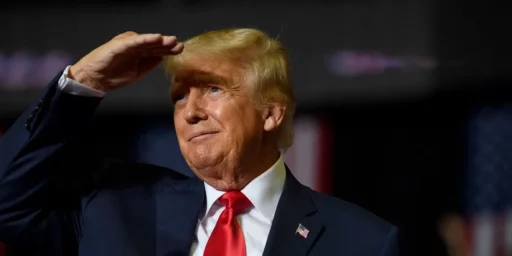
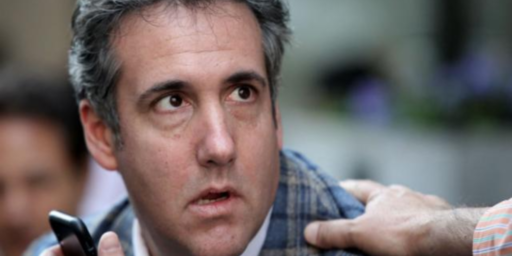
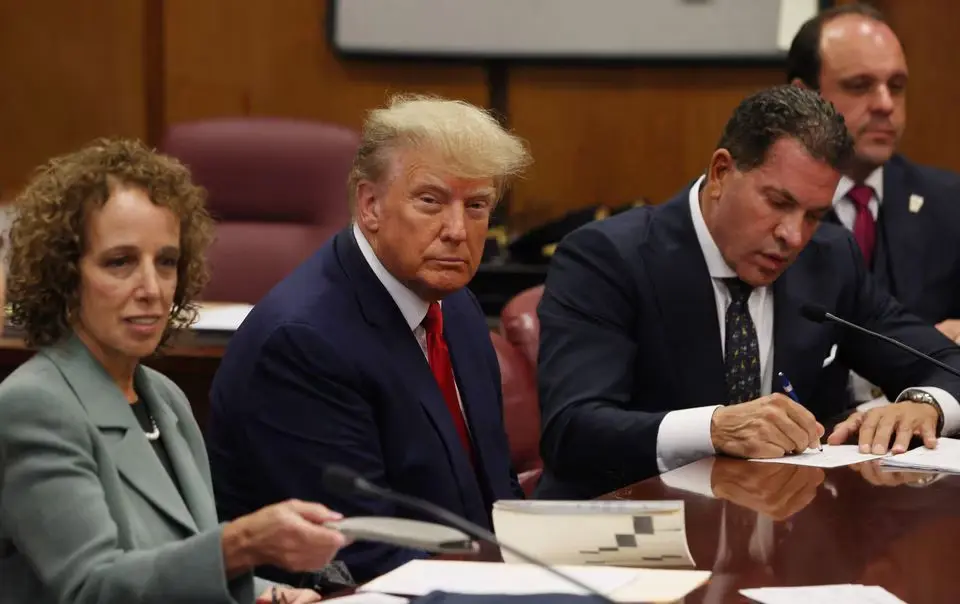
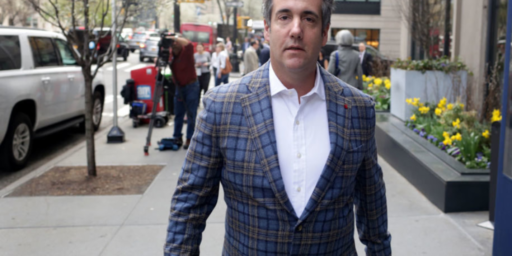
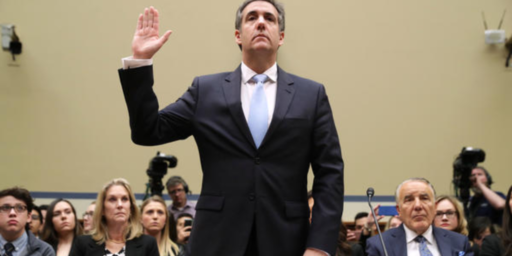
Manhattan’s new DA seems weak.
There, fixed that sub-head for you.
None of us has seen the evidence. But the guys who resigned sure did seem to imply they think they have a case.
Look – going after TFG is going to take big balls. If you miss you’re going to take a big political hit. Perhaps career ending…you know…by the time those really mean tweets let up.
But you know who had really big balls? Washington, Adams, Jefferson, Franklin.
Who – TODAY – has the balls to finally stand up and defend Democracy and rid us of this cancerous tumor? Right now Russian TV is broadcasting Trump’s effusive support (and Tucker Carlson’s) for Putin’s murderous war crimes in Ukraine. The former president of the United States, make no mistake, is a Russian asset.
If the Justice Department, and MIA USAG Garland, isn’t going to go after Trump – for fuqs sake – someone has to….or else issue guidelines to the American people spelling out who, exactly, is above the law and who isn’t.
It was always going to be hard to prosecute a former president. It’s not easy to prosecute a mere CEO or CFO. Although there’s always been a lot to look at here, why bother since everyone knows that nothing will happen? Maybe the civil sector charges will result in something. But I don’t see FG appearing in an orange jumpsuit anytime soon. (And the civil sector penalty phase is likely to show that he doesn’t really own anything so there’s nothing to fine or confiscate.)
I suggest a new Constitutional amendment, just to make thing perfectly clear:
The Nixon Amendment: If the president does it, did it, will ever do it, before, during, or after their time in office, it’s not illegal.
@Daryl and his brother Darryl: A series of emotional political arguments, unfounded in law, about a legal case is not a good reason to bring a weak legal case. Bringing and losing such a case is worse than not bringing.
Wanting law to do the work of politics is unwise.
That’s the tell. They stopped the grand jury when they realized they had a real risk of a no-bill. Grand juries only vote on the reasonableness of the prosecutors case, no defense evidence is permitted. Yet here, these two prosecutors didn’t feel confident in getting an indictment.
As I’ve always said: Trump will die at a ripe old age, never having been held to account for any of his manifest misdeeds committed before, during, or after his misbegotten presidency. In fact, it’s very possible he will serve another term.
If taking a long time to build a case against him would make me wrong, I welcome it. I just don’t see that happening.
Back in 2016 I didn’t think it was smart for someone with Trump’s past to call a lot of attention to himself. Looks like I was wrong and Frank Wilhoit was right. In the continuing absence of the Constitution Police it’s unclear just whose job it is to enforce the rule of law. Sure looks like everyone in a position to do anything about it, especially Merrick Garland, thinks it’s someone else’s job.
Over at LGM Robert Farley, while discussing Ukraine, mentions that our 2003 invasion of Iraq was dubious under “just war” theory. Last I heard W is enjoying a pleasant retirement in Dallas. Is he able to travel abroad now, or still afraid someone will bust him for war crimes?
He’s a coward.
It’s easy to “make a case” against some poor black kid for jumping a turnstile and claim to be tough on crime. So why bother trying to make hard cases, which require effort and might piss off possible campaign donors?
Now maybe our favorite resident abuser of the English language is correct and he really didn’t think he could get this one over. Why then the complete silence from his office? He knows he was elected by voters who expected him to pursue the Trumps — if he’s going to disappoint the majority of the citizens, doesn’t he owe us an explanation? Even if it’s “I looked into the evidence and I don’t think they’re guilt”? At least man up.
Or maybe he’s just going to do what his predecessor did when he had slam-dunk evidence that Ivanka and Don Jr were using their downtown hotel to launder money — take a big campaign contribution and forget the whole thing.
@wr: Oh, wait, I misspoke.
“He’s a coward” is the best-case scenario.
I’m not ready to rule out “he’s just another crook.”
@Lounsbury:
I want the law to finally do the job of fuqing law.
And fear of someone like Trump tweeting about you is the real emotion in effect here.
We have all watched as Trump broke the law…maybe you saw it…it was on live on TV for months. For the slower folks in the house, he has repeatedly admitted it.
He is on tape trying to get GA officials to manufacture votes.
Previous to all that…
He was an un-indicted co-conspirator in an election fraud case in which his accomplice did time in jail.
The Mueller Report spelled out 10 instances of Obstruction.
He abused the power of his office, and committed wire fraud, in trying to criminally bribe the Ukraine President.
He illegally destroyed official documents.
The NY case of tax and bank fraud grew out of an incredibly well reported and documented series of articles in the NY Times.
Make no mistake – the people who are choosing not to pursue these cases are making a political decision. And in doing so they are elevating politicians above the law.
@wr: Or maybe he’s just going to do what his predecessor did when he had slam-dunk evidence that Ivanka and Don Jr were using their downtown hotel to launder money — take a big campaign contribution and forget the whole thing.
This a thousand times
@JKB:
Hey JKB – please tell us about your ZeroHedge friends, and you, spreading Russian propaganda.
That’s your go-to source for your opinions. How does it feel to be played for a dupe, dupe?
https://www.bloomberg.com/news/articles/2022-02-15/us-accuses-financial-website-of-spreading-russian-propaganda
@JKB: “They stopped the grand jury when they realized they had a real risk of a no-bill. Grand juries only vote on the reasonableness of the prosecutors case, no defense evidence is permitted. Yet here, these two prosecutors didn’t feel confident in getting an indictment.”
The English language is a wonderful thing. You should try to learn it some day.
And once you actually learned to read, you’d discover that what you posted was the opposite of the truth. The prosecutors didn’t quite because they didn’t think the Grand Jury would indict but because they believed THIER BOSS was tanking the case.
Maybe you should stick to simpler phrases. “Let’s Go, Brandon,” and the rest…
@Daryl and his brother Darryl: Make no mistake – the people who are choosing not to pursue these cases are making a political decision. And in doing so they are elevating politicians above the law.
Very well put.
@JKB:
@wr:
I really, really, really don’t want my country governed by people who think “Let’s go Brandon” is clever.
The two attorneys who quit certainly seemed to think there was a case.
I’m of a slightly different mind on this. Why not wait until AG James walks him right into the civil case where his back is against the wall. He’s likely to perjure himself, or outright admit to criminal behavior, and then nail him. Who knows, this could well be the “easy button” way to get Trump.
@JKB:
This really feels like a selective reading of the evidence–including ignoring the sentence after the one you cited. Here is the full passage (with key emphasis):
This seems to be backed up by the rest of the reporting above (and elsewhere), not to mention the decision of the pair to quit. This is a case where all signs point to the Prosecutor exercising his discretion not to move forward at this time (versus to the two leads on the case). If this had been a decision by the prosecutors leading the team, it feels odd that they would be resigning over it.
As far as why Bragg appears to have come to this decision, a good Prosecutor isn’t as concerned with an indictment as they are a conviction. And this is definitely a case where you needed to be all but sure of conviction before moving forward due to the extreme costs that would come with such a trial. All and all, I think Bragg most likely made the correct choice at the moment.
HL92, I’d love your take.
@JKB: It doesn’t seem to have been the prosecutors as much as their new boss (who in a rare turn on the Who song isn’t the same as the old boss). The cited material seems to say that they quit when the realized he was going to slow walk it.
@just nutha: I see lots of people got here before I did. Still, repetition is not bad. Someone associated with Confucious is supposed to have said that repetition is the medicine for learning.
A thought that, as of the moment, is NOT worth a full post. Just up thread I wrote:
It’s a given that this case would go to trial. And since the DA, rightfully, assumes that Trump would not take a plea, then that changes the entire calculus.
Imagine how our system might change if going to trial became the default assumption in most, if not all cases. This is why the trial tax is so critical to maintaining the status quo.
@Daryl and his brother Darryl: Internet commentator posturing is very easy. Also easy to make sweeping assertions.
Actually winning legal cases, particularly complex ones of this nature, not very easy.
As your commentary is not legal but political, no in essence you want the law to achieve political goals. And on Internet Political commentator time line.
Financial crimes are tough. Everyone knows that. Here’s a suggestion for Bragg. Go get an easier job. Leave the tough stuff to the adults in the room.
@wr:
This exactly is what frustrating to the point of anger. Trump is far more damaging than any number of criminals who are easier to prosecute (including many whose offenses shouldn’t even be illegal, but that’s another matter). A lot of his illegal acts have been well documented, some were made in view of witnesses, and no one dares prosecute?
@Kathy:
I don’t get it, either, particularly since two of his prosecutors felt strongly enough that there was a good case to resign over this.
If I had to guess (and this is totally a guess), the prosecutor was concerned that an acquittal would be used by trump as a statement of his innocence. He also probably thinks that he’ll need a bullet proof case, because people will be unlikely to convict a former president on anything but unimpeachable evidence of violation of a serious crime.
That, plus the difficulty of making a financial crime case (and add in there a good dash of statute of limitations for some of his suspected crimes), that prosecutor is probably being a lot more risk averse than he would normally be.
And as disappointing as that is, I totally get it. If he screws the pooch, he’ll make it harder for anybody to prosecute Trump in the future.
@Mike in Arlington:
Either this, or else he’s a feckless career politician in a DA suit, dreading his return to trying to be a practicing attorney instead of a manager.
So what becomes of the case against Weisselberg? I know his charges weren’t earth-shattering (seemed like relatively low level tax fraud), but if he were convicted I assume he might get a fairly stiff sentence given that he is a CFO and should be held accountable. I always thought he was the best choice to go after – CFO’s know where all the bodies are buried.
Bottom line is that in this country financial crimes committed by white males don’t seem to be crimes – just the another way of doing business.
@Mike in Arlington: Yup. I abhor Trump. But a case lacking support from two successive DAs is a dead case.
Whether that death is kosher or not is something for those who elect Manhattan DAs to sort out. Trump spending decades committing crimes unchecked is as much an indictment of law enforcement as it is of Trump.
That potential complicity may have helped kill the case: what did those who should have been but weren’t holding Trump accountable all along know, and when did they know it? And who else in NYC finance, politics, and real estate is being allowed to get away with fraud?
Consider that, you’ll understand why this is going away. Remember, it was a Manhattan DA’s office lawyer that in 2011 argued to the NY Supreme Court for reducing Epstein’s sex offender status. The DA’s office is not going to bring a case that begs questions about possible corruption of New York officials past and present, including DA employees.
@senyordave:
Blackmail gets him out of it?
@just nutha:
Except some people don’t learn.
When a large chunk of the country decides that pwning the libs is more important than good governance, rule of law or democracy what can you expect?
@Flat Earth Luddite:
We have BINGO. Please clear your cards for the next round.
@senyordave: The only time financial crimes count against white guys is when more important white guys are the victims. If Madoff had limited the ponzi scheme to widows’ pensions, his shadow wouldn’t even have darkened the door of a jail.